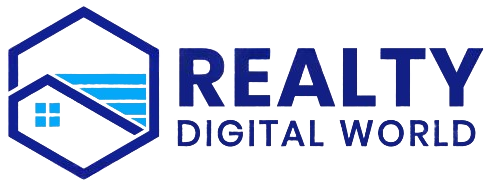Merged villages in PMC limits get boost
Updated on IN Deputy Chief Minister Eknath Shinde has sanctioned a substantial increase in infrastructure spending for the 23 merged villages now within PMC limits. This directive aims to rapidly address the existing infrastructure deficit that has plagued these areas since their incorporation in 2021. The Maharashtra state government recognizes the urgent need to bring…

Deputy Chief Minister Eknath Shinde has sanctioned a substantial increase in infrastructure spending for the 23 merged villages now within PMC limits. This directive aims to rapidly address the existing infrastructure deficit that has plagued these areas since their incorporation in 2021. The Maharashtra state government recognizes the urgent need to bring these villages up to par with the rest of the city.
To facilitate swift action, the PMC will allocate significant funding specifically for development projects in these regions. The focus will be on improving road networks, water supply systems, and sewage management. This injection of funds is intended to provide tangible improvements to the quality of life for residents in the merged villages.
Furthermore, each of the merged villages will receive an immediate allocation of ₹5-crore to initiate essential infrastructure upgrades. This initial funding will empower local authorities to begin addressing critical needs without delay. The PMC and state government will closely monitor the progress of these projects to ensure efficient resource utilization and timely completion.
Development Project Approvals
The state government has fast-tracked the approval process for numerous development projects across the 23 merged villages. These projects encompass a wide range of improvements, including the construction of new schools, healthcare facilities, and community centres. Streamlining the approval process will help to expedite the delivery of essential services to residents.
Specifically, the PMC has granted immediate approval for the construction of a new water treatment plant to serve the eastern merged villages. This project addresses a critical need for reliable access to clean water, a long-standing concern for residents. The Maharashtra state government is committed to ensuring that all residents within PMC limits have access to basic amenities.
Furthermore, the PMC has sanctioned the development of several road improvement projects, including widening existing roads and constructing new connecting routes. These projects will ease traffic congestion and improve connectivity between the merged villages and the rest of Pune. The increased infrastructure spending, coupled with rapid project approvals, is expected to bring significant positive change to these areas.
Property Tax Implications
The integration of the 23 merged villages into the PMC has brought about changes in property tax structures. Residents are now subject to PMC’s property tax rates, which may differ from those previously in place under the gram panchayats. This shift has prompted both concerns and discussions regarding the financial implications for homeowners in these areas.
The PMC has acknowledged the potential financial burden on residents of the merged villages and is exploring options to ease the transition. One such option under consideration is a possible tax amnesty scheme for a limited period. This scheme could provide temporary relief to property owners, allowing them to adjust to the new tax regime and settle any outstanding dues without incurring penalties.
Furthermore, the Maharashtra state government is working with the PMC to ensure fair and transparent property tax assessments in the merged villages. Efforts are underway to update property records and ensure accurate valuations, taking into account the existing infrastructure and development levels in each area. The goal is to establish a property tax system that is equitable and sustainable in the long term, while also supporting the continued development of essential infrastructure in these regions.
The ₹5-crore allocated to each village for immediate infrastructure upgrades will not be directly tied to property tax collection. The infrastructure funding is separate from the tax revenue and aims to provide immediate relief and kick-start development projects. This investment from the state government and PMC is intended to improve the overall quality of life for residents and enhance the value of properties in the merged villages.
Resident Benefit Schemes
To further benefit residents of the merged villages, the PMC is developing several resident benefit schemes. These initiatives aim to improve access to essential services and enhance the overall quality of life for those living in the newly incorporated areas. The schemes are designed to address specific needs identified by residents and local authorities.
One key scheme under development focuses on improving access to healthcare services. The PMC plans to establish mobile health clinics and expand existing healthcare facilities in the merged villages. This will ensure that residents have access to timely medical care, particularly for common illnesses and preventative health measures. The Maharashtra state government supports these initiatives to improve public health.
Another proposed scheme aims to provide educational support to students from disadvantaged backgrounds. This could include scholarships, tutoring programs, and access to learning resources. By investing in education, the PMC hopes to empower young people and create opportunities for future success in the merged villages.
In addition, the PMC is exploring options for providing financial assistance to vulnerable residents. This may involve subsidies for essential services, such as water and electricity, or direct cash transfers to help families meet their basic needs. The aim is to alleviate financial hardship and improve the living standards of the most vulnerable members of the community in the merged villages. These schemes will be funded, in part, from the increased infrastructure funding allocated by the state government. The ₹5-crore allocated to each village will also support these initiatives.
